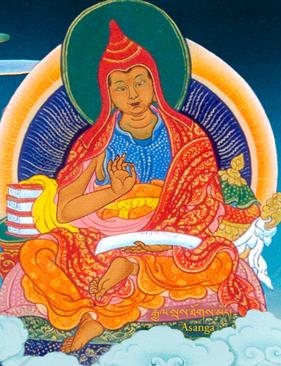Compendium of Abhidharma: Difference between revisions
Jump to navigation
Jump to search
No edit summary |
mNo edit summary |
||
| Line 1: | Line 1: | ||
[[image:Asanga.JPG|frame|'''Asanga''']] | [[image:Asanga.JPG|frame|'''Asanga''']] | ||
'''Abhidharma-samuccaya''' ( | '''Abhidharma-samuccaya''' ([[Wyl.]] ''mngon pa kun btus''), ''The Compendium of Abhidharma'', was composed by [[Asanga]], one of the '[[Six Ornaments]]', the greatest Buddhist authorities of Ancient India. ''Abhidharma-samuccaya'' is a complete and systematic account of the [[Abhidharma]]. | ||
==Translations== | ==Translations== | ||
Revision as of 20:39, 8 May 2009

Abhidharma-samuccaya (Wyl. mngon pa kun btus), The Compendium of Abhidharma, was composed by Asanga, one of the 'Six Ornaments', the greatest Buddhist authorities of Ancient India. Abhidharma-samuccaya is a complete and systematic account of the Abhidharma.
Translations
- Asanga, Abhidharmasamuccaya: The Compendium of the Higher Teaching (Philosophy), translated by Walpola Rahula, Sara Boin-Webb, Asian Humanities Press, 2001